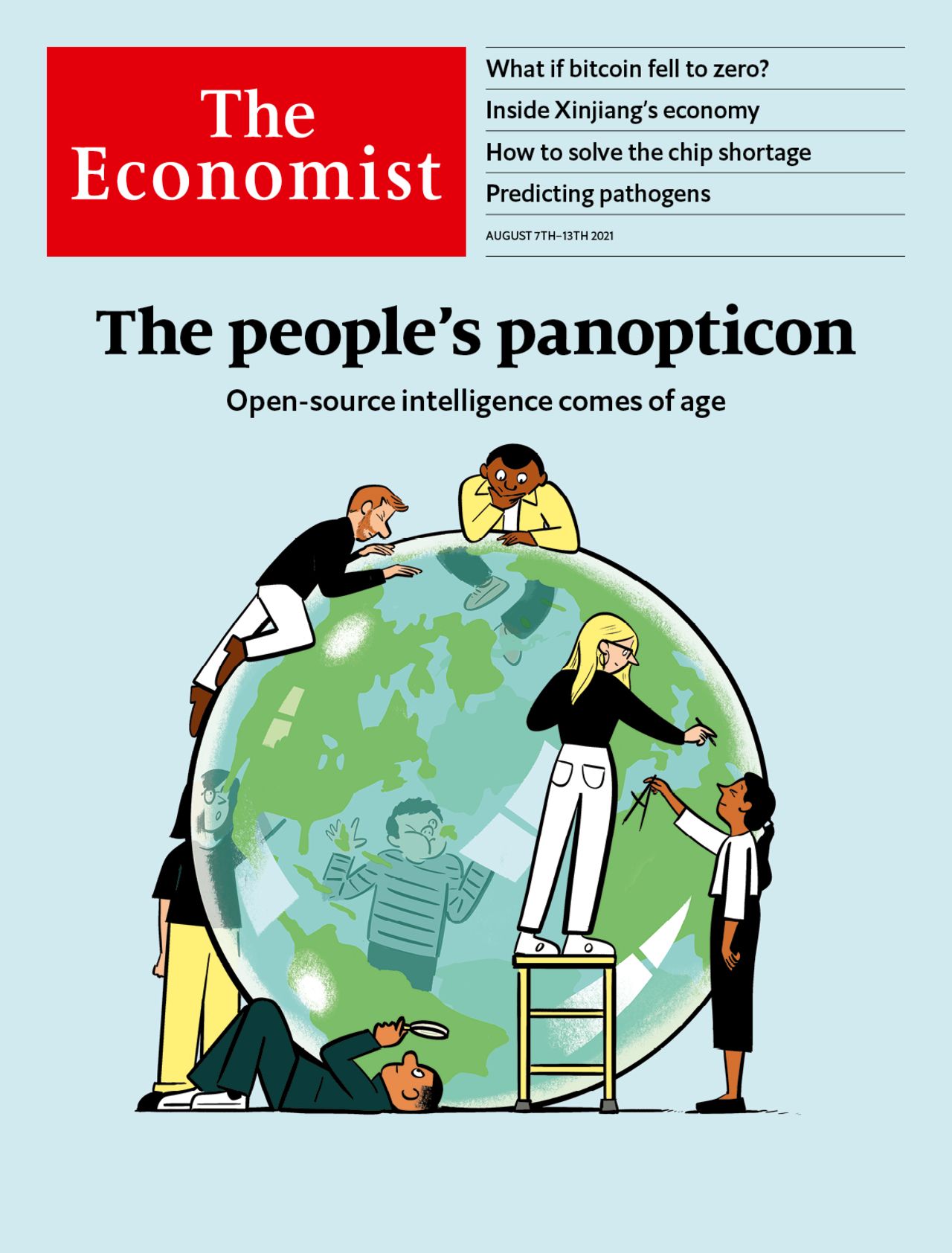The promise of open-source intelligence
It is a welcome threat to malefactors and governments with something to hide

THE GREAT hope of the 1990s and 2000s was that the internet would be a force for openness and freedom. As Stewart Brand, a pioneer of online communities, put it: “Information wants to be free, because the cost of getting it out is getting lower and lower all the time.” It was not to be. Bad information often drove out good. Authoritarian states co-opted the technologies that were supposed to loosen their grip. Information was wielded as a weapon of war. Amid this disappointment one development offers cause for fresh hope: the emerging era of open-source intelligence (OSINT).
New sensors, from humdrum dashboard cameras to satellites that can see across the electromagnetic spectrum, are examining the planet and its people as never before. The information they collect is becoming cheaper. Satellite images cost several thousand dollars 20 years ago, today they are often provided free and are of incomparably higher quality. A photograph of any spot on Earth, of a stricken tanker or the routes taken by joggers in a city is available with a few clicks. And online communities and collaborative tools, like Slack, enable hobbyists and experts to use this cornucopia of information to solve riddles and unearth misdeeds with astonishing speed.
This article appeared in the Leaders section of the print edition under the headline “The people’s panopticon”
More from Leaders

Nigel Farage’s claim that NATO provoked Russia is naive and dangerous
It is also a wilful misreading of history

AI will transform the character of warfare
Technology will make war faster and more opaque. It could also prove destabilising

Emmanuel Macron’s project of reform is at risk
A snap election in France reveals the flimsiness of his legacy

